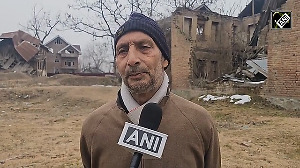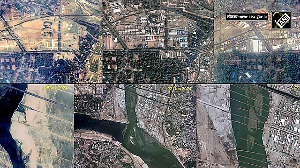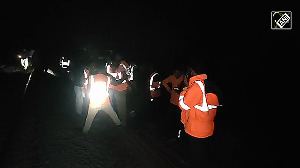South Korea, who reached the World Cup semi-finals under Dutchman Guus Hiddink, and Japan will meet on Wednesday in Yokohama to decide the East Asian title after wins on Sunday and last Thursday.
South Korea beat China 1-0 on Sunday while Japan defeated Hong Kong by the same score.
But neither team has looked convincing against inferior opposition, following a trend that has become all too familiar under their current coaches.
South Korea had lost three of their previous four matches before the championship victories, including Asian Cup qualifying slip-ups against Vietnam and Oman that led to calls from within the Korea Football Association (KFA) for coach Humberto Coelho to be sacked.
Instead, the former Portugal coach was given a vote of confidence, only for South Korea to be beaten 1-0 by Ulsan University in a warm-up for the East Asian Championship.
Coelho has, with some justification, complained that he has rarely been able to call up his European-based players since taking charge in March.
But a return of just one goal in six games -- excluding Asian Cup qualifiers -- before they beat Hong Kong 3-1 last week, points to a deeper malaise.
MORE FREEDOM
Even with Japan-based players Yoo Sang-chul and Ahn Jung-hwan available, the self-belief that infused the team under Hiddink has suddenly evaporated.
The responsibility on captain Yoo and Ahn, both hugely influential for South Korea at the World Cup, is enormous.
"Hiddink used to keep tight control over all the players," Ahn said. "With Coelho you tend to get a bit more freedom."
That freedom, or rather the lack of authoritarian leadership, could go some way to explaining why South Korea have gone backwards since the World Cup.
The laid-back Coelho steered Portugal to the semi-finals of the 2000 European Championship but a similar style of management has yet to reap dividends for South Korea.
Initially criticised for his strict methods, Hiddink proved that the South Korea players -- physically strong and technically gifted -- responded best to a regimented style of coaching.
The same held true for Japan under French taskmaster Philippe Troussier, who had frequent training ground bust-ups with his players but led them to the second round of the World Cup.
Since Brazilian Zico took over in July 2002, however, Japan have won six of 17 matches and only three out of 11 at home.
EASIER JOB
Unlike Troussier, who badgered and provoked his players constantly to get them fired up for games, Zico takes a more cerebral approach.
"I played for Brazil for over 10 years and, compared to that, this job is a lot easier," said Zico.
But under Zico Japan have fallen considerably short of the standards set by Troussier -- with or without Europe-based players such as Hidetoshi Nakata and Junichi Inamoto.
Troussier led Japan to the Asian Cup title in Lebanon in 2000 and the final of the 2001 Confederations Cup on home soil, proving that his approach worked.
Zico, like Coelho, has big shoes to fill and has so far failed to deliver. The East Asian Championship title would be a start but nothing to get carried away with.
Japanese and Korean officials would do well to avoid knee-jerk reactions with the Asian qualifiers for the 2006 World Cup set to begin in February.
But a sharp improvement in fortunes is needed quickly to halt an alarming decline for Asia's top two teams.








 © 2025
© 2025